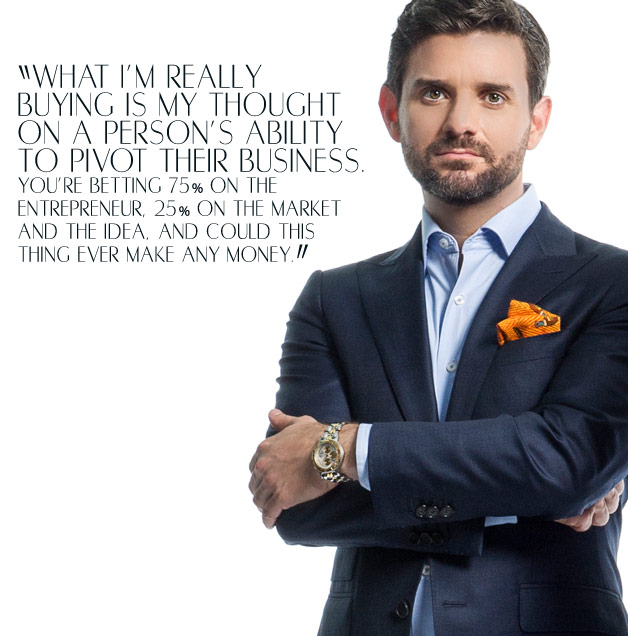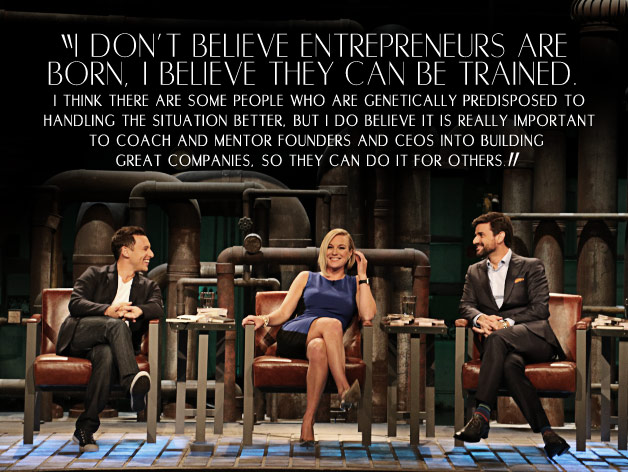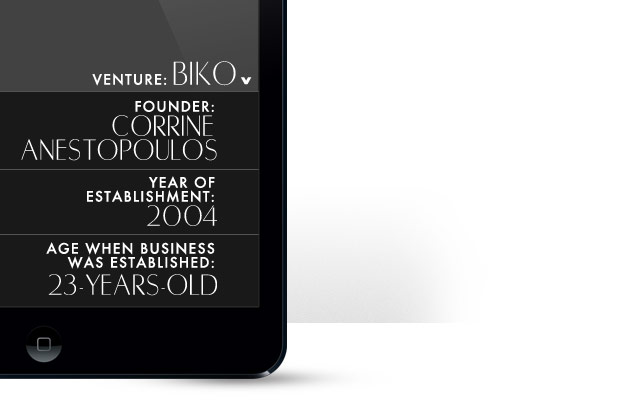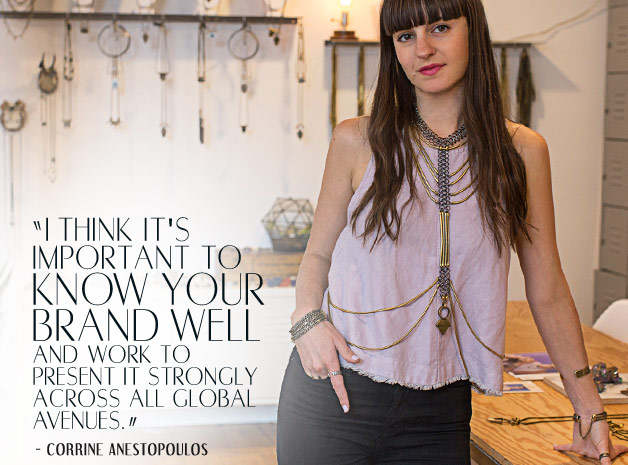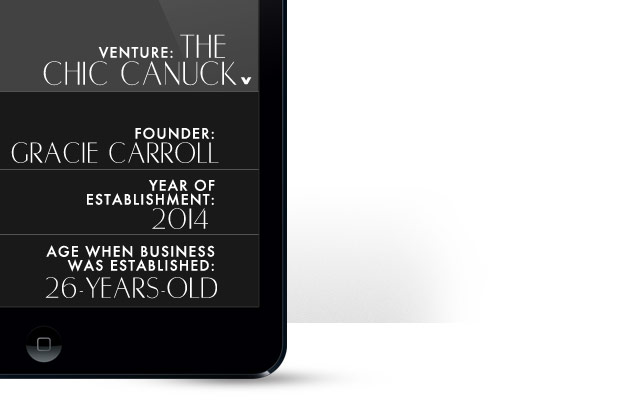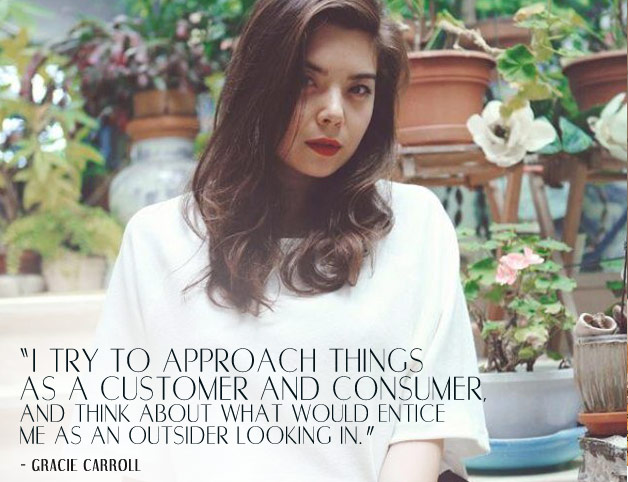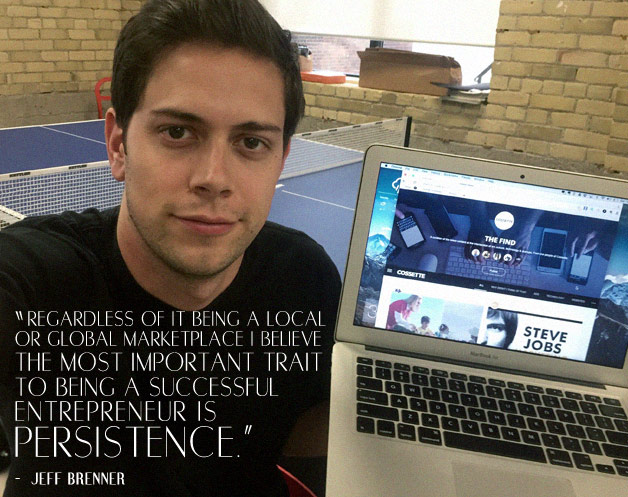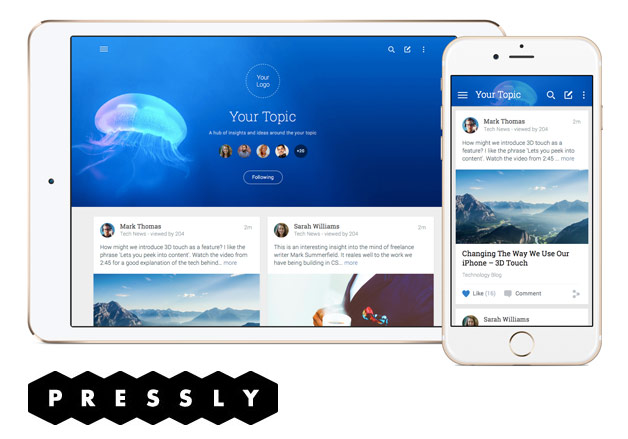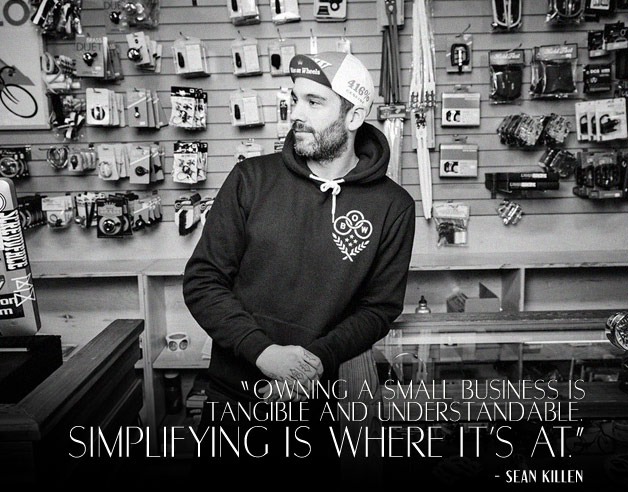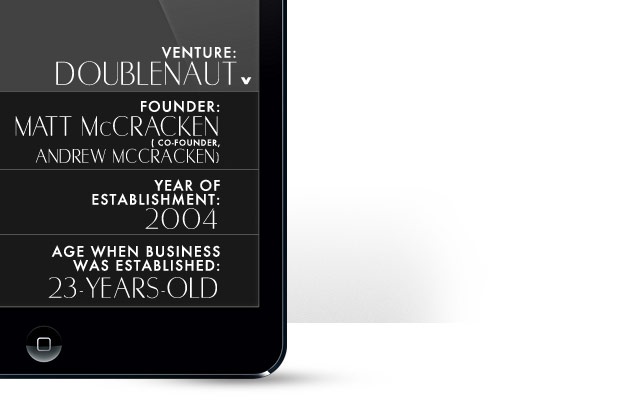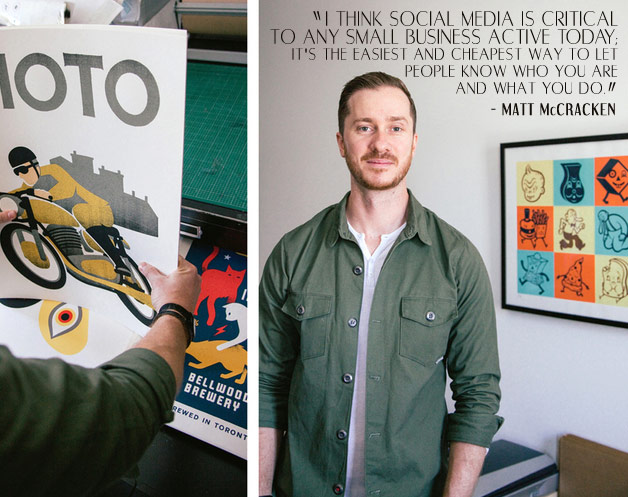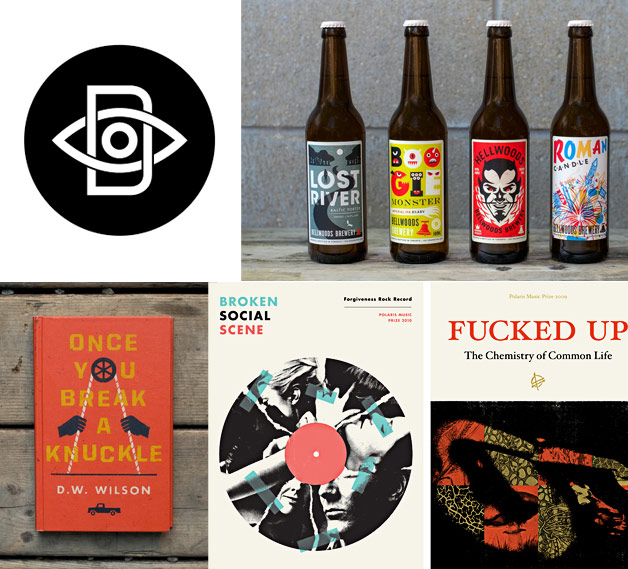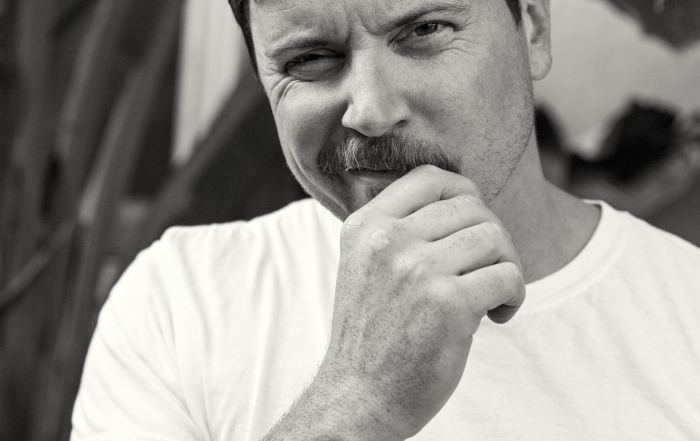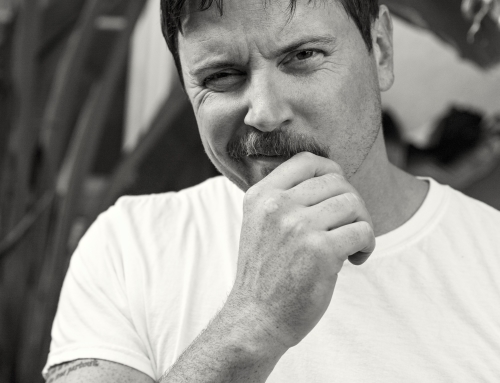The monikers for our generation go easy on endearment. It’s evident from the Boomerang label we’ve earned for our habit of returning to whence we came (i.e. mom and dad’s) after a short-lived stint in the “real world” to our Me Me Me Generation tag that tips its hat to a certain propensity for narcissistic behavior—suggested by a trend in fish-faced selfies declaratively hashtagged #blessed—the haters be hating we millennials. While it’s true we ushered in an era dominated by social media (in all its self-obsessed plastic glory) and “celebrity” bloggers—culminating in the unfortunate invention of the selfie stick—it is also our generation that has kick-started (no pun intended) a paradigm shift in everyday communication processes that span the globe and marketplace via ideas, technology and companies built by creative visionaries under 30.
“There is this incredible wave of entrepreneurship going on in just about every major city…I’d like to say in the world,” observes Michael Hyatt, co-founder and Executive Chair of BlueCat, a leading Canadian technology company. A weekly business commentator on the CBC News Network, Hyatt is conversant in the rapidly evolving business landscape, and in the keen eyes of this entrepreneur—who made his millions by age 25—change is good. “We’re going through this revolution now, where it’s not 90% cheaper to start a business today than it was 10-15 years ago, it’s 99%. We’re seeing this generation of millennials that are super bright and talented and their starting innovative companies and there going into traditional business that we thought would just be that way forever, and they’re coming in and tearing them apart and putting them into the cloud and making things hyper efficient. There’s a lot of very exciting things happening in business.”
Hyatt is a champion of the next generation of CEOs, and counts investments in start-ups and his role as a mentor at the Creative Destruction Lab at University of Toronto’s Rotman’s School of Business amongst his contributions to future growth. He also happens to be (would-be-entrepreneurs take note) one of three judges on Next Gen Den, the web spinoff of CBC’s popular Dragon’s Den, where entrepreneurs pitch their business ideas to potential investors, otherwise known as “Dragons.”
The sole carry over from the show’s first season, this season Hyatt shares his Next Gen Den Dragon duties with newbies Harley Finkelstein, chief platform officer (CPO) at Shopify Inc., and Nicole Verkindt, founder of OMX (Offset Market Exchange). Scheduled to premiere in tangent with Dragon Dens on October 7th, the 20 webisode series—available exclusively online at cbc.ca—finds its own audience with a younger demographic of entrepreneurs, proposing ideas with millennial prowess.
In honour of Next Gen Den’s upcoming premiere, we caught up with Hyatt to get his expert advice on venturing into the competitive world of business, while also rounding up a few of our favourite local entrepreneurs (each with an individual and very un-big-box cool factor to their business) to talk inspiration and how they did it. Whatever your stock-in-trade may be, or whether you believe in “decacorns” of the Airbnb, Uber or Snapchat variety or not, the knowledge gleaned from this collective we’ve put together has boom worthy stuff to it. Time to do what we millennials do best: start sharing.
What separates this new generation of entrepreneurs? Is it the rise of a creative class?
The cloud is breaking everything—just imagine every business going to the cloud or utilizing the cloud; that creates a hyper efficiency, and margins and delivery of things. There was a time when people didn’t want the horse and buggy to be taking over things, but it did, and we’re going through another generational shift. If you take a three-year-old and give them a newspaper, they’ll take their hand and move the page like an iPad. We’re seeing this shift to the creative class and we’re seeing so many great start-ups in Toronto and Vancouver and Ottawa and they’re doing really well, and they’re hiring a lot of people. The good news is, not only are these start-ups hiring a lot of people, but once they get going and are successful, they’re paying a lot of money and that’s great for our economy. People are paying taxes and going to restaurants and hotels, and that’s what we need.
When you listen to the pitches, are you more interested in the idea or the passion the entrepreneur has in his/her idea?
I would have to say, I’m interested in both. What happens is that if you bet on the person—if I see a really bright girl or guy come in and they have something great—I know that in 24 months, they’re going to pivot their company in either a small way or a big way a couple of times to get to the right place. What I’m really buying is my thought on a person’s ability to pivot their business. We’d like to say that you would have invested in Google or Airbnb on day one, but you probably wouldn’t have because you didn’t quite see it, and people pivot and make changes. You’re betting 75% on the entrepreneur, 25% on the market and the idea, and could this thing ever make any money. I think there is also a self-interest part in it, like, “am I even interested in this business?” Sometimes I see business that I think they can make money, but I’m just not interested in the space; I don’t think I have anything to add. Being an entrepreneur myself, I always wanted to work with people that wanted to add to my business. When you build a company, you could be in it seven to ten years…you could be in it for a long time. So, when you take on an investor, you’re kind of marrying them for a while, and I have to feel like I can add something.
You once said in an interview that a “founder should always run their own business.” What advice can you give to founders dealing with opinionated investors?
Well, investors are opinionated by nature and that’s how they got there. I think it is important for founders to work with people they like. I don’t believe entrepreneurs are born, I believe they can be trained. I think there are some people who are genetically predisposed to handling the situation better, but I do believe it is really important to coach and mentor founders and CEOs into building great companies, so they can do it for others. If I was a young founder in a company, I would try to find people smarter than me that I could work with and think, if I was stuck with them at an airport for four hours, would I be upset, or, would I invite them to my family barbeque? You have to like the person because it is a marriage of sorts, you’re going to be with them for a long time. There’s the high point when you get the money and everyone is high-fiving, but there is going to be a lot of dark days: your product is going to be late, you’re going to miss a quarter of revenue—you may even miss a year of revenue—you’re going to have all these other problems and you’ve got to be able to phone an investor and go, “hey, we just missed our quarter” or “we have a legal problem,” and that someone has to be like, “yeah, I’ve been to that rodeo.” I think that is important.
Do you consider social media to be a critical component of a company’s or product’s success today, or can a company and product still just depend on its good quality to build success?
Social media has allowed for something completely new, which is the network effect. Before when I had a product, it was hard to get it to catch on like fire with word on mouth—like literally word of mouth—now from LinkedIn to Facebook to Twitter to Snapchat and Instagram we have an incredible platform to let a tremendous amount of people know about it very quickly. So, I still think you have to build a great red wagon, as they say, but it will get picked up a lot faster—social media is critical.
What advice would you give an entrepreneur who thinks they have a great idea for a business? What’s one way to gage that something isn’t just a good idea, but a smart business venture?
Well, there’s an unfortunate side to thinking you have a good idea and you have friends and family who love you that will tell you, “oh my God that’s great, do it.” Maybe those are not the people to talk to because they have rose-coloured glasses on; they love you and want you to do well and try, but that’s not the right thing. You need to find people that would naturally invest in your company. Turn around and ask your friends and family for five or ten thousand dollars and you might hear the truth a little bit better. You have to get away from your bias to push and find out will this thing really sell. I would go out and spend a lot of time on people who don’t owe you anything to see if they would buy it.
Original style is not something we take for granted. From everyday wear to the occasional soirée, Biko has the vintage-inspired accessories (hand-crafted to boot) we don when in want of something that will fashionably set us apart from the rest.
What inspired your business idea?
As a little girl I was known to voice my opinion, no matter how inappropriate or unwelcome. One day on the subway, I turned to my mom, pointed at a woman beside us and announced rather loudly that I hated this woman’s necklace. While admittedly a tactless moment, it seems that was the critical point I realized I cared about fashion and style. Many years later, while earning my Undergrad in Fine Arts/Design, I casually played around with materials and quickly became obsessed with making earrings and necklaces. Friends jumped on board, and sales started to come in. Self-taught, I worked to develop the ‘modern nostalgic’ Biko aesthetic that I aim to stay true to with each new collection. I always nod to the past, but with a modern sensibility. I officially launched Biko upon graduation in 2005 because I felt I had found an outlet to express my personal style, along with much excitement and a great feeling of having nothing to lose, but so much to gain if it all worked out. I jumped right in, took risks and have never looked back.
How long did it take you to turn your idea into an operating business, and what was the most difficult challenge you faced during this process?
As far as designing product and making sales, the business became operational almost immediately. However, looking back I think I jumped in without enough focus on brand positioning. After five years in business, I took a hard look at my logo and brand direction, and realized I had completely missed the mark on messaging. At that point I invested in a complete rebrand, which included a new logo, business cards, website design and PR strategy. I would say that early on, the most difficult challenge I faced was being self-taught and thus having to figure out many things as I went through them, without strategizing in advance.
How important has social media been to the development of your business/brand? Do you think it is critical to running a business today?
In running a fashion business today, I feel a social media presence is crucial. Whether it is a glimpse into behind-the-scenes processes, designer inspiration or simply access to insider discounts, people crave a deeper connection and seem to truly enjoy learning about a brand’s many facets. In turn, I find it allows us to keep an open dialogue with our customers and receive feedback on what excites them, allowing us to better target our next steps.
What would you say it takes to be a successful entrepreneur in today’s marketplace?
I think it’s important to know your brand well and work to present it strongly across all global avenues. This includes a great web presence or e-comm store, social media engagement and participating in tradeshows or working with agencies in markets outside your own. Building a presence with press and bloggers also helps to create buzz, which in turn allows more people the opportunity to be a part of your brand.
As the founder of your business, how do you personally measure its success?
I feel a sense of success whenever I spot somebody wearing a Biko piece in the street or in the media. It’s a reminder that what I do is noticed and makes others happy. Additionally, another measure of success is our visible growth in the American market. Whenever we have a great tradeshow or are picked up by a new store we’ve had our eye on, it makes me feel like we’re doing well.
With true patriot love we support The Chic Canuck. Buying from local designers is what we believe in, and this site makes doing it in style both simple and entertaining. Bonus: garner tips on everything from how to make cookie dough protein bites to where to vote in the upcoming Canadian election from the Chic Canuck blog.
What inspired your business idea?
When I was living abroad (in New York and then London, UK) I really realized how good we have it here in Canada. From afar I could see that friends and acquaintances (especially in Toronto) were making moves and starting their entrepreneurial journey into fashion, food, design and beyond. I wanted to come home and not only be a part of it, but somehow celebrate it on a larger scale. This is what lead me to create TheChicCanuck.com: A Tastemaker’s Guide to Canada.
How long did it take you to turn your idea into an operating business, and what was the most difficult challenge you faced during this process?
There was a year gap before I fully got things underway to launch and become a real website. I was meeting designers and brands to share my idea and determine if they would be interested in working with me before life got in the way; I bought a house with my boyfriend, decided to stay at my day job for security, and was overwhelmed by how I would tackle another side project on top of what I had on the go. A year later, I still thought it was a great idea and was frustrated that I wasn’t doing it. I decided I needed to work with people to make it happen, and cranked it out within three months.
How important has social media been to the development of your business/brand? Do you think it is critical to running a business today?
Absolutely. How we absorb content now has completely changed. Even I myself rarely visit a blog itself, and instead keep up with my favourite online publications and personalities through their daily social media updates. I try to approach things as a customer and consumer, and think about what would entice me as an outsider looking in.
What would you say it takes to be a successful entrepreneur in today’s marketplace?
Dedication, agility and a thirst for knowledge.
As the founder of your business, how do you personally measure its success?
Feedback from our readers and customers is very important to me. When our company message is received with a positive and enthusiastic reaction, I couldn’t ask for more. It helps inspire me to keep driving forward and go after what I’ve set out to do, no matter what it takes.
We don’t run with many tech types, but the guys at Pressly—the same pair formerly of Nulayer that Toronto Life crowned two of Canada’s “app kings” in their 2010 cover story for the magazine’s “Money Issue”—speak our language. A platform that accessibly provides tailored content sure to engage your audience? Yes please!
What inspired your business idea?
My co-founder, Peter Kieltyka and I had been running a successful software development business where we built products for other companies. One of the products we built saw a tremendous amount of success. We decided we would only build products for ourselves. The idea for Pressly came from the feeling we had of being overwhelmed with the enormous amount of content being created and shared. We wanted a better way to collaboratively discover and share content with our peers and communities, so we could better determine what content to spend our time consuming.
How long did it take you to turn your idea into an operating business, and what was the most difficult challenge you faced during this process?
Pressly started out as a side project for 4-6 months in our previous company. We then switched our focus full time. Initially it was difficult to switch from a consulting culture to a product culture.
How important has social media been to the development of your business/brand? Do you think it is critical to running a business today?
Only somewhat important. We were lucky to have built personal networks in our previous business we could leverage. Social media is certainly a very important channel to get in front of your audience and engage customers. The importance changes at different stages of the business.
What would you say it takes to be a successful entrepreneur in today’s marketplace?
Regardless of it being a local or global marketplace, I believe the most important trait to being a successful entrepreneur is persistence. It will always take longer. There will always be more challenges; nothing it always up and to the right.
As the founder of your business, how do you personally measure its success?
I ask: Are we building a team, a culture and a product that delivers on our vision and creates real value for our customers.
Aside from every serious cyclist in town, anyone in Toronto who has a tattoo by artist Kris Sharon and/or frequents Sam James Coffee in the mornings—and there are a lot of you—counts Bikes on Wheels a must-stop shop…rider or not. When an independent bike retailer is behind a coveted line of branded clothing, it’s apparent, they’re doing something right.
What inspired your business idea?
Well, we (Aidan and I) bought the business as is, so it was really just making it our own from there. We specialize in the types of bikes that my friends and I ride everyday; so, city and track bikes mostly, and more recently, family bikes. The BOW brand itself grew pretty organically with the help of some very creative friends (i.e. Doublenaut), which we think is awesome too.
How long did it take you to turn your idea into an operating business, and what was the most difficult challenge you faced during this process?
We were operational, with an existing client base on day 1, so the biggest challenge for us was learning the ins and outs of running a small business, and of course cash flow.
How important has social media been to the development of your business/brand? Do you think it is critical to running a business today?
Instagram is pretty integral for us. We use it as a communication tool for our group rides, as well as our platform for broadcasting what’s going on, what’s new, what we love, etc. I think images are key to garnering interest; without them, you have no impact.
What would you say it takes to be a successful entrepreneur in today’s marketplace?
Well, obviously, you need to be selling something that people want or need. Then you need a way to communicate this to the population. Finally, you need to be genuine and likable, because that translates to the customer, no matter how much of a show you put on.
As the founder of your business, how do you personally measure its success?
Success is a tricky thing when you’re raised in a capitalist environment, where profits outweigh personal fulfillment. We actually spend a lot of time talking about this. If we can pay our bills and provide for our family, then at least our bases are covered. We are sometimes approached by investors that promise big bucks in expanding, but we aren’t interested. It would no longer be ours. Owning a small business is tangible and understandable. Simplifying is where it’s at.
The sibling duo at Doublenaut get original graphic design; the cool kids know it, and the retailers trying to tap that market want it. (See the designer collaboration the guys did with Holt Renfrew for its 175th anniversary for proof.) Their singular style is easy to spot and once you do, your walls—like ours—will be covered with their art.
What inspired your business idea?
Doublenaut was started as a way for my brother Andrew and I to do the kind of design we want to do. We felt there weren’t a lot of local designers focusing on design for bands/musicians and wanted to fill that gap. As things progressed, we started to diversify more and take on all forms of print design.
How long did it take you to turn your idea into an operating business, and what was the most difficult challenge you faced during this process?
We started right away working out of our apartments. After a few months we were able to get a studio where we could all work together. Our biggest challenge in the beginning was meeting new clients and getting jobs that paid enough to support us.
How important has social media been to the development of your business/brand? Do you think it is critical to running a business today?
Social media has played a big role in our development and success. We’ve never paid for advertising or really gone after work. We’ve been able to stay very busy over the past few years just by sharing our work though Instagram and Twitter, also by doing blog interviews and having our work published in various design books and magazine. I think social media is critical to any small business active today; it’s the easiest and cheapest way to let people know who you are and what you do.
What would you say it takes to be a successful entrepreneur in today’s marketplace?
In terms of a design studio, I think you have to work hard and develop a style that sets you apart from other studios. It’s also important to handle the business side well by connecting with clients, keeping up on social media, and going after work you believe in and will help your company grow.
As the founder of your business, how do you personally measure its success?
We measure Doublenaut’s success by the fact that it continues to grow every year. Our work gets stronger, we connect with bigger clients, and we’re able to always stay busy with new work…plus, we still enjoy doing it.









